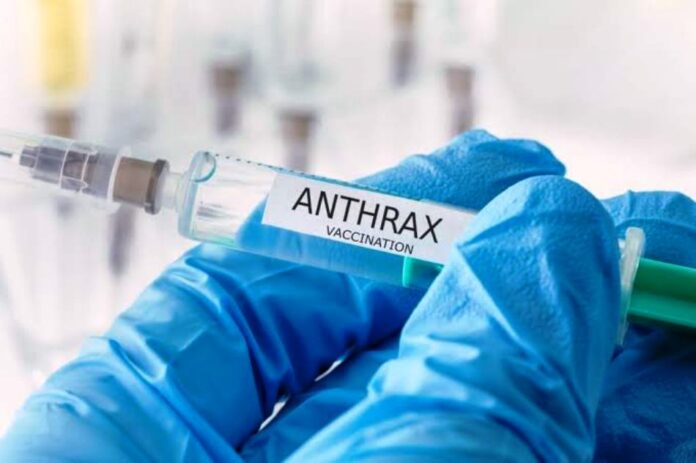You would recall that a few weeks ago the Federal Ministry of Agriculture and Rural Development communicated the risk of incursion of Anthrax into the country, following confirmed outbreaks in Ghana and other countries in West Africa.
Anthrax is major zoonotic disease caused by spore-forming bacterium Bacillus anthracis, which primarily affects animals such as cattle, sheep, and goats but can also infect humans, who come into direct contact with infected animals or consume contaminated animal products.
The disease can also be transmitted through contaminated pasture, feed and water.
The clinical signs of Anthrax in animals include sudden death and oozing of blood from natural body openings (nose, ear, mouth and anal region).
The spores of anthrax can persist for decades in contaminated environment.
Last week our disease surveillance team reported a suspicion of anthrax in a multi-species animal farm comprising of cattle, sheep, goats and poultry located at Gajiri, along Abuja-Kaduna express way Suleja LGA Niger state.
A Rapid Response Team comprising of Federal and state One-Health professionals visited the farm and conducted detailed disease outbreak investigation.
On the 16th of July 2023, the Ministry received a report of confirmation of anthrax in Niger state, from the National Veterinary Research Institute (NVRI)-Vom, Plateau state, making it the first recorded case of anthrax in Nigeria in recent years.
The Federal Government, through the Ministry and in collaboration with the Niger state government has taken proactive measures to timely control and contain the disease. Such measures include:
Quarantine of the affected farm.
Deployment of 50,000 doses of anthrax vaccines for ring vaccination of susceptible animals’ species around the infected farm.
Educating the farm workers using One-health approach on the symptoms, preventive measures and what to do when they notice any sign of the disease.
Finalization of plan for statewide vaccination of susceptible animals against anthrax.
Intensification of passive surveillance activities in livestock farms, markets and abattoirs
Heightening targeted public awareness campaigns on anthrax.
Also, the Ministry hereby urges all livestock owners to:
i. Remain very vigilant and promptly report any suspicion of illness or deaths on their farms
ii. Avoid contact with sick or dead animals and their products.
iii. Avoid slaughtering of sick animals. Slaughtering of sick animals can expose people to anthrax spores.
iv. Avoid contact with wild animals and products such as ‘bush’ meat.
v. Report any incidence of sudden death of animals to the nearest veterinary authorities.
vi. Use personal protective equipment (gloves, facemasks, goggles, boots) when handling sick animals or dead animals.
vii. Practice good biosecurity measures.
viii. Dispose all cases of animals in an environmentally friendly manner and in consultation with veterinarians, environmental and public health officers.
Vaccination is the most effective preventive measure against anthrax in livestock, consult with a veterinarian.
Once again, with your cooperation we are putting in place critical and necessary steps to contain the disease.
The Federal Ministry of Agriculture and Rural Development in close and effective One-Health oriented collaboration with major stakeholders such the Federal Ministries of Health, Environment and the Nigeria Center for Disease Control (NCDC) as well as our Development Partners will continue to provide updates on the situation of the disease, please.
For further enquiries, please contact:
Email anthrax@fmard.gov.ng | FMARD +234 811 097 2378 Twitter: @FDVPSCNigeria | Facebook: Department of Veterinary & Pest Control Services – FMARD
Dr Ernest A. Umakhihe
Permanent Secretary






